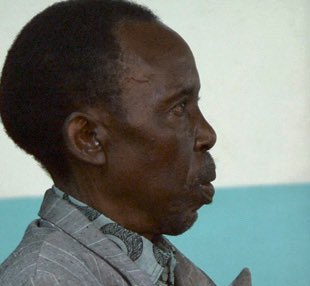Encounters with conflict and peace
An experiment in recovery
Rwandans are building a new homeland open to all Rwandans - Hutu or Tutsi - with intelligence, self-reliance and determination.
Across the country, in thousands of towns and villages, the population is taking part in an experiment in recovery which touches every area of life.
Homes, roads and community facilities are being re-built. Almost every adult Rwandan has been part of gacaca, the community justice process to deal with genocide crimes, and there is popular interest in ‘hearts and minds’ concepts like healing, forgiveness and reconciliation.
Mind damage

As conditions improve and safety, food and shelter are no longer the main issues, the need to pay attention to hearts and minds is becoming clearer. What use are new pots and pans if you spend your days wondering what happened to the bodies of your murdered children? Where’s the benefit in a thriving new market in town if you can’t go there because you no longer trust anyone - or because the banana seller is the man who murdered your husband?
“In Rwanda, the trauma problem is as big as the country,” said Jean Mukamusome, director of medical services at AVEGA, a national association for widows. “Each one of us faces his own problems in his own time. Even those who are not yet facing their trauma might… in 15 or 30 years or more.”
Rebuilding connections
Trauma destroys how we connect with life. It can damage our thinking, our feelings, our understanding of where we fit. It can be so painful that we want to hide from the facts of what happened to us – it can make us go into denial because we don’t ever want to feel the same pain again.
It also destroys connections between people – it makes victims scared of perpetrators, it shuts down relationships, it wrecks any trust or cooperation. Being traumatised can make relating to other people just too hard – too risky.
Severe trauma can also destroy our trust in life in general. It can wreck our sense of meaning and stop us connecting with anything bigger than ourselves, by messing up our sense of what life is all about, our sense of purpose and our hope for the future.
If trauma does all these things – if it disconnects us from ourselves, other people and any bigger picture – then recovery from trauma should mean re-building these connections.
< previous page | next page >
In this section
AN EXPERIMENT IN RECOVERY
Back from the edge
Experiment in recovery
A new Rwanda
JUSTICE
An overloaded system
The importance of justice
Teaching gacaca
Confronting the past
Soft justice?
Has gacaca delivered justice?
PEOPLE WHO KILLED
Helping killers
Sorry
MIND DAMAGE
Recovering from genocide
Living with the pain
Obstacles
Where does it hurt?
BUILDING PEACE
Breaking the cycle
Building peace

Back from the edge
Experiment in recovery
A new Rwanda
JUSTICE
An overloaded system
The importance of justice
Teaching gacaca
Confronting the past
Soft justice?
Has gacaca delivered justice?
PEOPLE WHO KILLED
Helping killers
Sorry
MIND DAMAGE
Recovering from genocide
Living with the pain
Obstacles
Where does it hurt?
BUILDING PEACE
Breaking the cycle
Building peace

